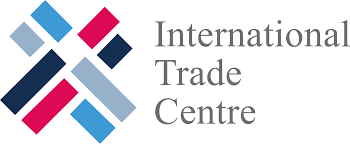Unemployment rates for persons with disabilities persons with disabilities in sub-Saharan Africa are among the highest in the world, often exceeding 80% to 90%. Inaccessible infrastructure, societal stigma, and policy shortfalls restrict access to meaningful work.
Technology offers a powerful solution, enabling remote work and opening doors to global opportunities. In Ghana the tech sector is valued at around $1 billion and continues to grow. From fintech to agritech, the potential is vast, but the participation of persons with disabilities has been notably low.
This gap became clear during digital trade and e-commerce training sessions run by TechFarm Hub, where Executive Director Kobina Adomadzi Longdon and his team engaged with young entrepreneurs, including persons with disabilities.
‘Technology is a game-changer,’ Longdon noted, ‘but many persons with disabilities feel left out because society treats these tools as if they’re only for the able-bodied.’
In response, TechFarm Hub partnered with the Netherlands Trust Fund V (NTF V) at the International Trade Centre (ITC) to develop training on digital inclusion and freelance skills.
With support from the NTF V Ghana Tech project, the Disabilities Relief and Innovation Support Programme (DRISP) recently delivered a three-day course on practical digital and entrepreneurial skills to access the global gig economy.
TechFarm Hub, a social innovation and business development centre based in Koforidua in eastern Ghana, helps startups and small businesses grow. The hub places a strong focus on digital inclusion and agribusiness.
Building digital careers
Twenty participants from across Ghana took part, including Grace Otoo, a fashion designer from Koforidua.
‘I gained valuable skills in designing flyers, which I now use to promote my business,’ she said. ‘I learnt how to use WhatsApp and TikTok to expand my customer base and increase visibility.’
The training programme provided practical, hands-on learning in:
- Setting up online businesses and navigating digital trade
- Cybersecurity, online fraud prevention, and mobile money security
- Social media marketing strategies to enhance visibility
- Content creation and graphic design using Canva
- Personal branding and profile optimisation on platforms such as Upwork, Fiverr, and Toptal
The training was designed with accessibility in mind, with wheelchair-friendly facilities, assistive technology, and learning modules tailored to meet a range of needs.
Breaking barriers to employment
By equipping people with disabilities with the tools to work remotely, the programme removes barriers such as limited physical access and exclusion from the job market.
‘This initiative is about empowerment through digital inclusion,’ said Kobina Adomadzi Longdon. ‘We are making sure they have the tools and knowledge to do so.’
Participants have already begun applying their skills, setting up online profiles, securing freelance gigs, and connecting with clients. Many now feel confident about freelancing, marking a real shift from the challenges they’ve faced with traditional job hunting.
Measuring impact
‘All the training sessions were really informative, especially the Canva training where we learnt to design logos and brand flyers,’ said trainee Isaac Zokliss. ‘Before this, we’d only heard about branding. Now I see how important it is. The logo I created has given my business a unique identity and helps customers recognise my products instantly.’
Trainee Michael Tettey agreed: ‘I’ve learnt how to take photos of my work, create content, and post it on social media. As a barber, I now know how to market myself more effectively.’
TechFarm Hub plans to expand the programme to reach more participants and offer more advanced support. This includes new courses in e-commerce, video editing, and digital advertising – skills that are increasingly relevant in today’s job market. The organizers also aim to secure funding for essential tools like laptops and tablets to improve access to digital work.
Another priority is to strengthen post-training support, including mentorship. ‘As Ghana’s digital economy grows, programmes like this are key to making sure persons with disabilities can access real opportunities for work and independence,’ said Longdon.
Distributed by APO Group on behalf of International Trade Centre.



